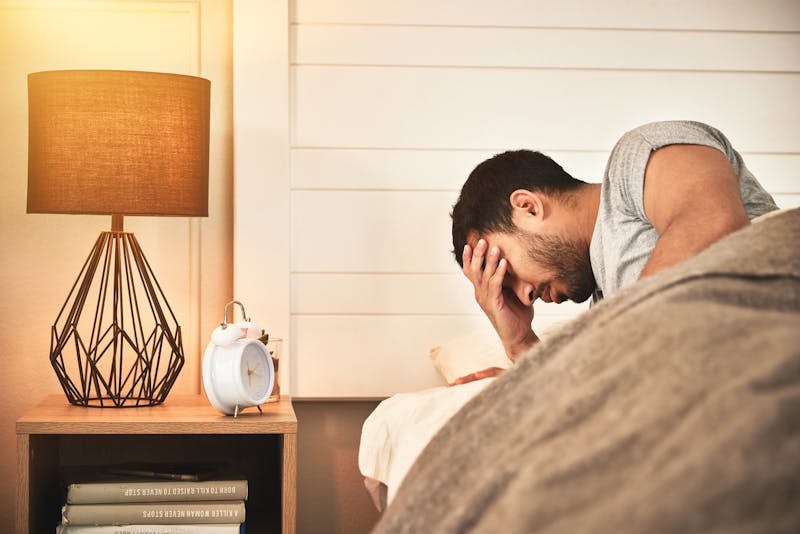
Sleep apnea, a condition that affects millions of people worldwide, is characterized by interruptions in breathing during sleep. This leads to poor sleep quality and a range of health issues, but can sleep apnea can cause dizziness? While dizziness is not commonly listed as a primary symptom of sleep apnea, many patients report experiencing dizziness or lightheadedness, particularly upon waking.
The professionals at Louisiana ENT Specialists are here to help! In this blog, we will explore the relationship between sleep apnea and dizziness, the potential causes, and the importance of seeking professional help.
Sleep Apnea Basics
There are three main sleep apnea types:
- Obstructive sleep apnea (OSA): OSA is the most common form and occurs when the throat muscles intermittently relax and block the airway during sleep.
- Central sleep apnea (CSA): CSA involves a failure of the brain to send proper signals to the muscles that control breathing.
- Complex sleep apnea syndrome: A combination of both OSA and CSA.
The Link Between Sleep Apnea and Dizziness
Dizziness is not universally recognized as a primary symptom of sleep apnea, but there is enough anecdotal evidence and patient experiences to suggest a possible link:
Interrupted Sleep and Poor Oxygenation
Sleep apnea causes repeated interruptions in breathing, leading to decreased oxygen levels in the blood. These interruptions can result in fragmented sleep and poor oxygenation, which may cause dizziness or lightheadedness upon waking.
Fluctuations in Blood Pressure
During apneic episodes, the body's oxygen levels drop, and the heart has to work harder to pump blood, leading to fluctuations in blood pressure. These changes can contribute to feelings of dizziness, especially in the morning when you first get out of bed.
Carbon Dioxide Buildup
Carbon dioxide can build up in the bloodstream when breathing stops during sleep apnea. This accumulation can affect the balance of gases in the body and lead to dizziness or disorientation.
Autonomic Nervous System Dysfunction
Sleep apnea can disrupt the autonomic nervous system, which regulates involuntary bodily functions, including heart rate and blood pressure. This disruption can result in symptoms like dizziness and lightheadedness.
Identifying the Symptoms
Dizziness alone is not enough to diagnose sleep apnea, but it can be a part of a broader range of symptoms. More common symptoms of sleep apnea include the following:
- Loud snoring
- Gasping or choking during sleep
- Frequent awakenings or restless sleep
- Morning headaches
- Excessive daytime sleepiness
- Difficulty concentrating
- Mood changes, such as irritability or depression
Treatment Options
Once diagnosed with sleep apnea, several treatment options can help manage the condition and alleviate associated symptoms like dizziness:
- Continuous Positive Airway Pressure (CPAP): CPAP is the most common and effective treatment for OSA. It involves wearing a mask over your nose or mouth while you sleep. The mask is connected to a machine that delivers a continuous air stream, keeping your airway open.
- Lifestyle Changes: Weight loss, regular exercise, and avoiding alcohol and smoking can significantly improve sleep apnea symptoms.
- Oral Appliances: For some patients, specially designed oral appliances can help keep the airway open by repositioning the jaw and tongue during sleep.
- Surgery: In severe cases, surgical options may be considered to remove or reduce tissue blocking the airway or reposition the jaw.
Expert Care for Sleep Apnea: Discover the Difference at Louisiana ENT Specialists
While dizziness is not a hallmark symptom of sleep apnea, it can be related to the condition due to the associated fluctuations in oxygen levels, blood pressure, and autonomic nervous system function. If you experience dizziness and other sleep apnea symptoms, it is important to seek professional evaluation and treatment.
The experts at Louisiana ENT Specialists are here to help you achieve better sleep and overall health through comprehensive diagnosis and personalized treatment plans. Don’t let sleep apnea go untreated – take the first step towards better sleep and a healthier life. Contact our ENT Specialists today to schedule your consultation and learn more!

